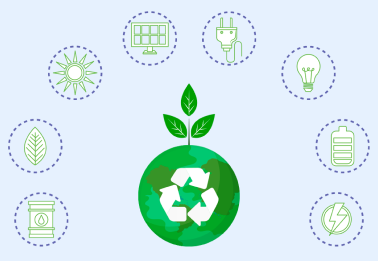The Sustainability Imperative: Building a Resilient Tomorrow

In the modern age of rapid industrialization and globalization, the imperative of sustainability has never been more urgent. As we confront escalating environmental degradation, social inequities, and economic uncertainties, the need for a paradigm shift towards sustainable development becomes increasingly apparent. Sustainability offers a roadmap for navigating these challenges, guiding us towards a future where ecological integrity, social equity, and economic prosperity go hand in hand.
At its core, sustainability is about striking a balance between the needs of present and future generations. It requires us to rethink our consumption patterns, production methods, and resource allocation to ensure that we can meet our needs without compromising the ability of future generations to meet theirs. This entails transitioning towards renewable energy sources, reducing waste, and promoting responsible consumption and production practices across all sectors of society.
Crucially, sustainability is not just about environmental conservation—it’s also about fostering inclusive and equitable societies. By addressing social injustices, promoting gender equality, and ensuring access to education and healthcare for all, we can create conditions for human flourishing while safeguarding the planet. Sustainability recognizes that social progress and environmental protection are interconnected and mutually reinforcing goals.
In recent years, there has been a growing recognition of the urgent need to prioritize sustainability in global policymaking, business practices, and individual behavior. From the adoption of the Paris Agreement to the rise of the circular economy movement, there are signs of progress towards a more sustainable future. However, much more remains to be done to accelerate the transition towards sustainability and address pressing issues such as climate change, biodiversity loss, and social inequalities.
One of the key challenges in advancing sustainability is overcoming short-term thinking and entrenched interests that prioritize profit over people and planet. This requires bold leadership, visionary policymaking, and collective action at all levels of society. It also calls for innovative solutions and disruptive technologies that can drive systemic change and unlock new opportunities for sustainable development.
As we look to the future, it is clear that sustainability must be at the forefront of our agenda for building a resilient and thriving world. By embracing sustainability as a guiding principle and taking concrete actions to integrate it into our policies, businesses, and everyday lives, we can create a future where people and planet prosper together. Now is the time to harness the transformative power of sustainability and shape a world that is not only sustainable but also just, inclusive, and prosperous for all.




